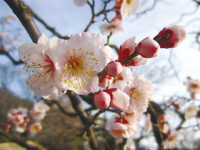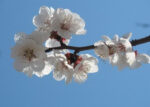十一月花–山茶花
November Flower–Camellia
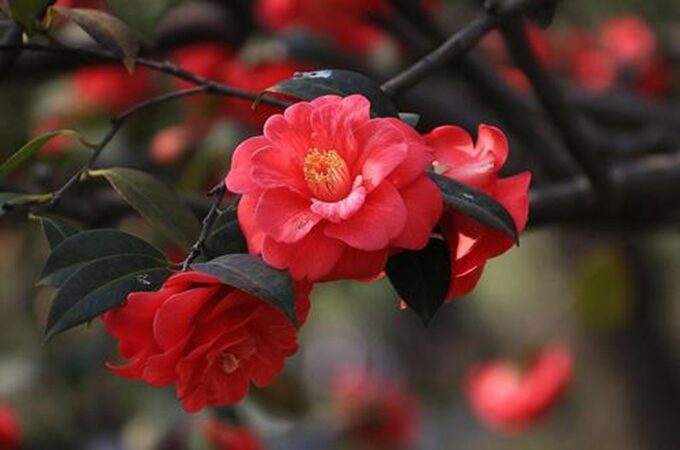
山茶花花語是理想的愛、謙讓、謹慎、高潔孤傲。
The flower language of camellia is ideal love, humility, prudence, nobility and aloofness.

山茶花還有「理想的愛」這一種花語,經常被用來送給喜歡的人,表達心中的滿腔愛意。
Camellia also has a flower language of “ideal love”, which is often used to give to the people you like to express the full love in your heart.
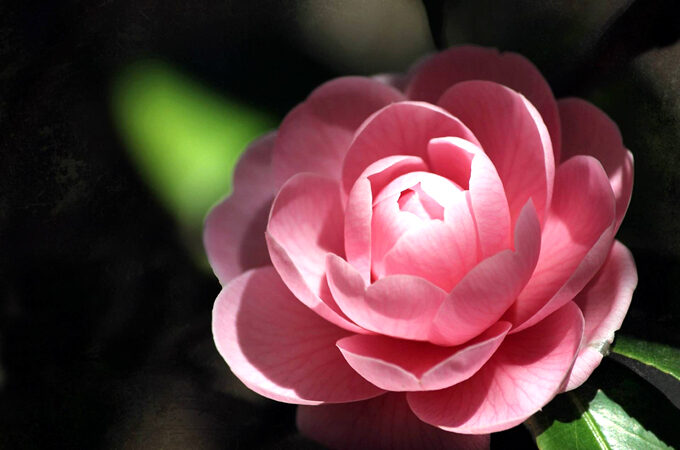
十一月山茶花花神:王昭君
王昭君,姓王名嬙,南郡秭歸人。漢元帝時以“良家子”入選掖庭。傳因不肯賄賂畫師毛延壽,毛延壽便在她的畫像上點上喪夫落淚痣,自此一直無緣君面。時呼韓邪來朝,帝敕以五女賜之。王昭君入宮數年,不得見御,積悲怨,乃請掖庭令求行。呼韓邪臨辭大會,帝召五女以示之。昭君豐容靚飾,光明漢宮,顧影徘徊,竦動左右。帝見大驚,意欲留之,而難於失信,遂與匈奴。後呼韓邪單于亡故,昭君按照匈奴“父死,妻其後母”的風俗,繼嫁予呼韓邪的長子復株累單于雕陶莫皋。
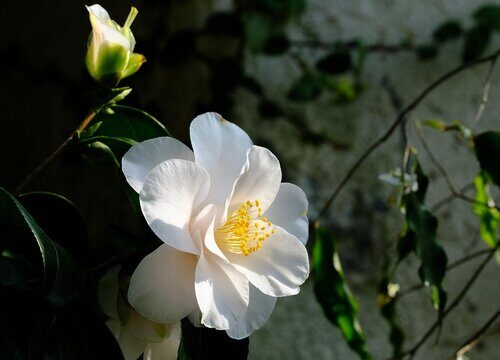
Camellia Flower God in November: Wang Zhaojun
Wang Zhaojun, surnamed Wang and Qiang, was from Zigui, Nanjun. During the reign of Emperor Yuan of the Han Dynasty, he was selected into Yeting as a “good family son”. It is said that because she refused to bribe the painter Mao Yanshou, Mao Yanshou put a mole on her portrait. Since then, she has not been able to meet the king. At that time, Hu Hanxie came to court, and the emperor gave him five daughters. Wang Zhaojun had been in the palace for several years, but could not see the emperor. He was filled with sorrow and resentment, so he asked Ye Ting to order him to do it. Hu Hanxie was about to bid farewell to the assembly, and the emperor summoned five daughters to show him. Zhaojun is rich and beautiful, in the bright Han Palace, his shadow is wandering around, and his hair is moving around. The emperor was shocked and wanted to keep him, but it was difficult to break his promise, so he broke up with the Xiongnu. Later, when Hu Hanxie died, Zhaojun followed the Xiongnu custom of “if the father dies, his wife will take his stepmother”, he married Huhanxie’s eldest son, Fuzhulei Chanyu, Diao Tao Mogao.
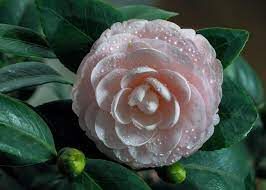
《
十一月山茶》 唐 白居易
似有濃妝出絳紗,行光一道映朝霞。
飄香送艷春多少,猶如真紅耐久花。

